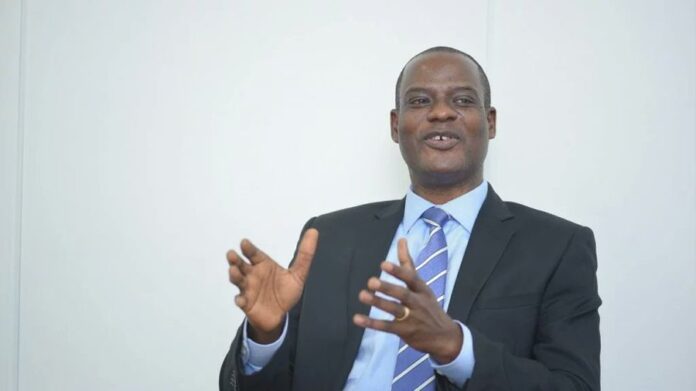The Chairman of the Presidential Committee on Fiscal Policy and Tax Reforms, Taiwo Oyedele, has revealed that Lagos State stands to suffer the most significant financial setback under President Bola Tinubu’s proposed tax reforms. Speaking during an Arise TV interview, Oyedele highlighted the complexities of the reforms and their potential implications for Nigeria’s tax landscape.
President Tinubu, in a bold move to overhaul Nigeria’s outdated tax system, introduced four Tax Reform Bills in October 2024. The bills — the Nigeria Tax Bill 2024, the Tax Administration Bill, the Nigeria Revenue Service Establishment Bill, and the Joint Revenue Board Establishment Bill — aim to simplify tax laws, improve revenue generation, and address regional inequities.
However, the reforms have sparked widespread debate, with Lagos State emerging as a focal point due to its pivotal role in Nigeria’s tax ecosystem.
A Systemic Overhaul
For decades, Lagos has been the financial hub of Nigeria, housing the headquarters of major corporations like MTN, Dangote, BUA, Airtel, and leading banks. These companies, through their centralized finance departments, remit substantial Value Added Tax (VAT) revenues to Lagos. Under the existing system, this centralization has given Lagos a significant share of VAT collections, despite the consumption often occurring in other states.
Oyedele explained that the new reforms aim to redistribute VAT more equitably, shifting revenues away from Lagos. “Today, when companies remit their VAT, they tend to do so from their head offices because that’s where their finance departments are located,” he said. “Most of these headquarters are in Lagos, giving the state an outsized advantage in VAT collections.”
The Legal Battleground
The issue of VAT collection has been contentious for years. States like Lagos and Rivers have argued that they contribute far more to the VAT pool than they receive in allocations. Both states have taken the matter to court, asserting that VAT should be collected by individual states rather than the federal government.
Oyedele, however, cautioned against this approach, suggesting it could lead to chaos. “If we allow states to collect VAT independently, it will create significant challenges for businesses,” he warned. “States in Nigeria are unlikely to respect the input-output mechanism, which is crucial for VAT administration.”
The expert likened state-level VAT collection to a “100% derivation” model, which could exacerbate regional inequalities and discourage investment. “For businesses, dealing with 36 different VAT regimes would be a nightmare,” he added.
Historical Context
The VAT debate is rooted in historical and constitutional issues. Oyedele pointed out that Nigeria’s 1999 Constitution, which borrowed heavily from the 1979 version, failed to explicitly address VAT because it was not in existence at the time. Despite this omission, the federal government has continued to collect VAT, leading to disputes over jurisdiction and fairness.
In 2021, Rivers State won a landmark case at the Federal High Court, affirming its right to collect VAT within its territory. However, the federal government appealed the decision, and the matter remains unresolved. This ongoing legal tussle underscores the complexities of Nigeria’s tax system and the competing interests of federal and state authorities.
Lagos as the Biggest Loser
Under the proposed reforms, Lagos could lose billions in annual VAT revenue as collections are redistributed across states. Oyedele acknowledged this reality but argued that the reforms are necessary to ensure a fairer tax system. “Lagos is the biggest loser in this reform because most VAT is currently remitted there,” he said.
The redistribution plan aims to address long-standing complaints from other states, particularly in the North, which have accused the current system of favoring Lagos and Rivers. However, the reforms have not been universally welcomed. Critics, including some northern stakeholders, argue that the proposed changes could undermine their economic interests.
Balancing Equity and Efficiency
Oyedele emphasized that the committee’s goal is to strike a balance between equity and efficiency. “Our focus is to create a tax system that works for everyone, not just a few states,” he said. The proposed single-digit tax regime and zero percent VAT on food are part of broader efforts to ease the burden on Nigerians, particularly low-income earners.
However, achieving this balance will not be easy. The reforms face significant opposition, not only from states like Lagos and Rivers but also from various interest groups across the country. Some critics have labeled the bills “anti-North,” while others have expressed concerns about their impact on businesses.
The Way Forward
As the National Assembly debates the Tax Reform Bills, the stakes are high. The outcome will determine not only the future of Nigeria’s tax system but also the broader economic and political dynamics of the country.
For Lagos, the reforms represent a double-edged sword. On the one hand, they threaten to erode its financial dominance. On the other hand, they could encourage greater investment in other states, reducing the pressure on Lagos’s overstretched infrastructure. Oyedele called for constructive dialogue and compromise, urging stakeholders to prioritize the national interest. “We need to move beyond regional rivalries and focus on what’s best for Nigeria as a whole,” he said.

